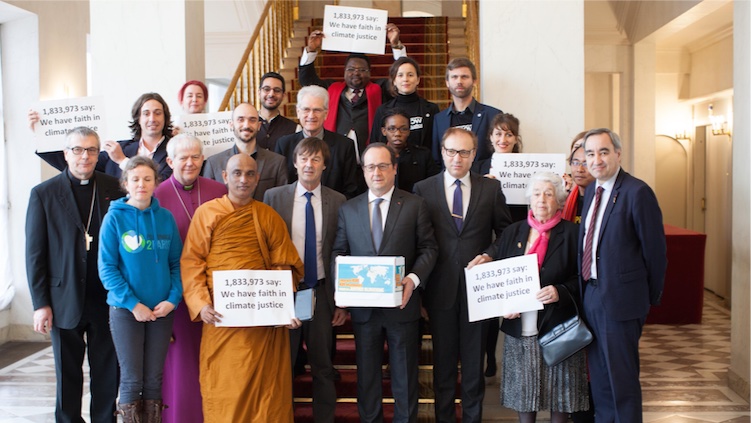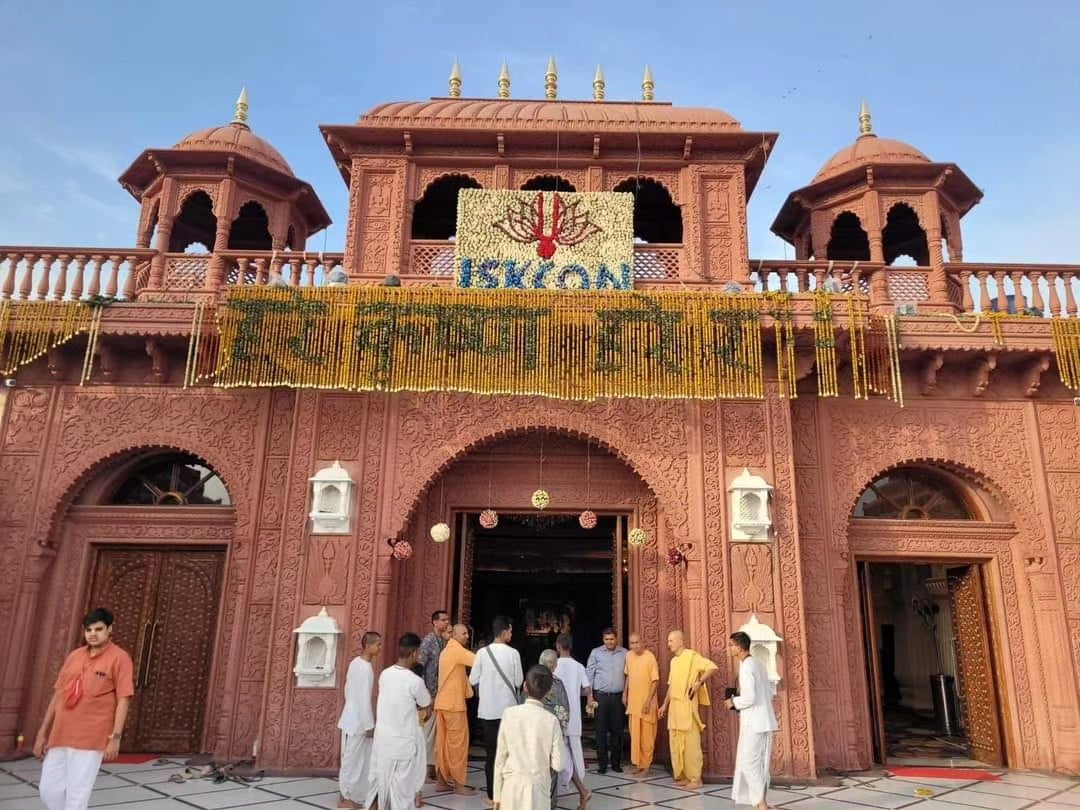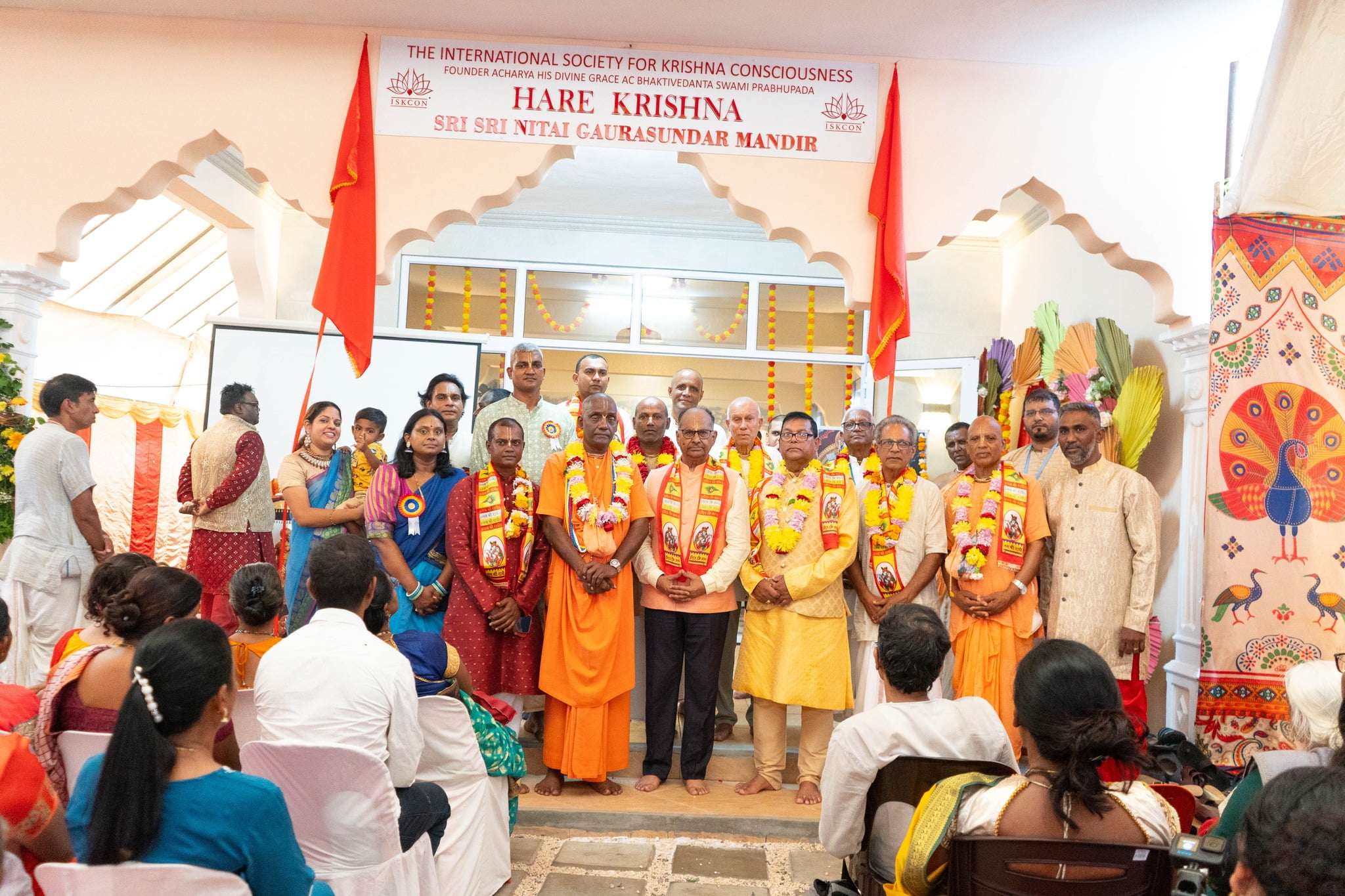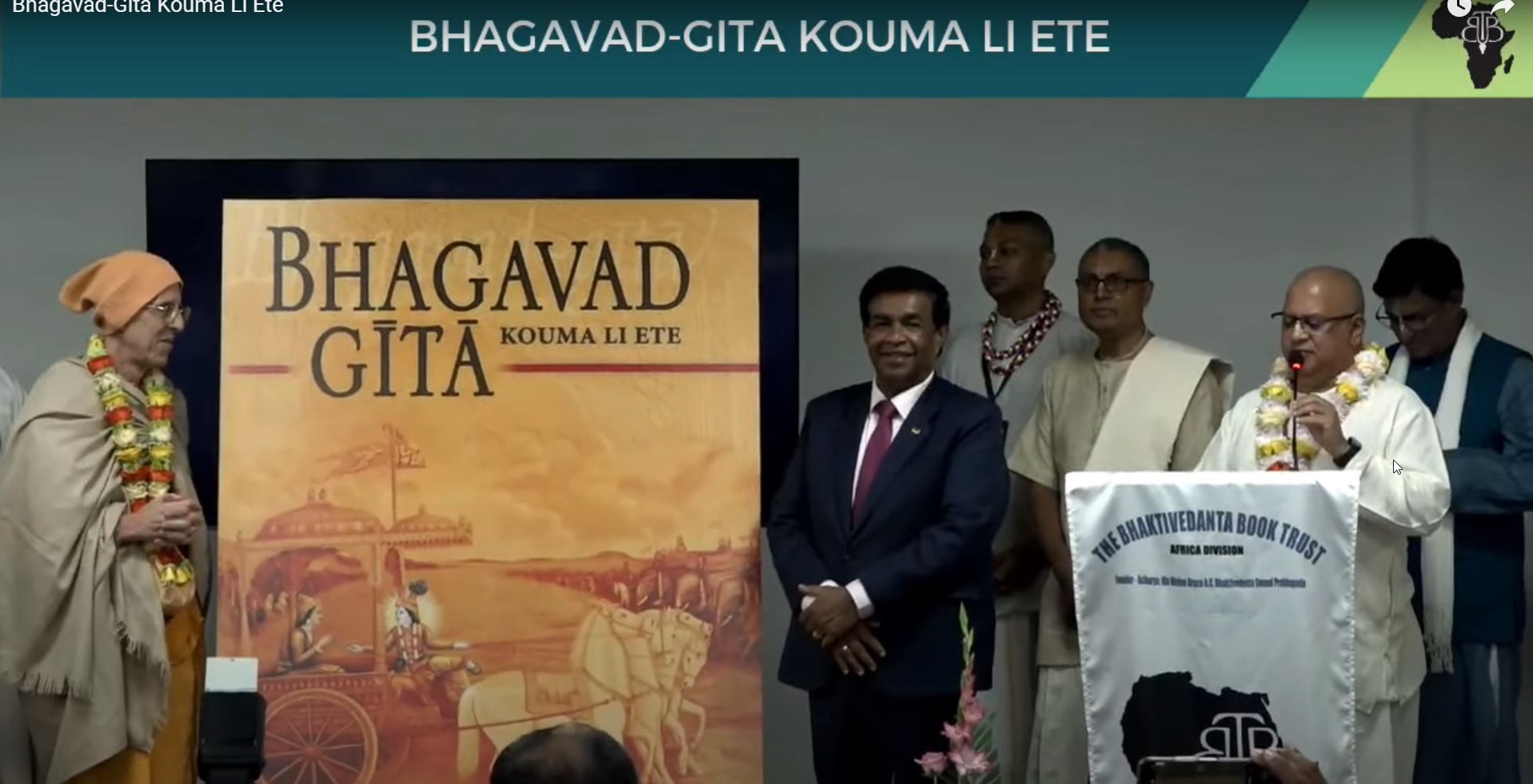ISKCON Can Play A Part in Reducing Climate Change
By Madhava Smullen | Dec 17, 2015

After the history-making climate change talks at COP21 in Paris concluded this past weekend, ISKCON leaders and members are looking to increase their part in fighting climate change.
On December 12th world leaders and representatives of 195 countries agreed to to work together to limit average global warming to 2 degrees Celsius (3.6F) above pre-industrial temperatures. If possible, they’ll strive for a safer limit of 1.5 degrees Celsius (2.7 F).
This means stopping use of fossil fuels like gas, oil and coal altogether between 2050 and the end of the century to meet the 2 degrees Celsius cap. To meet the more ambitious 1.5 degree cap, the world will have to stop using fossil fuels between 2030 and 2050.
According to CNN, “Failure to set a cap could result in superdroughts, deadlier heat waves, mass extinctions of plants and animals, megafloods and rising seas that could wipe some island countries off the map.”
So what can ISKCON do? Even secular world leaders agree that the world’s religions can motivate change by presenting the moral reasons for living a green lifestyle.
During the COP 21 talks, French president Francois Holland met with the leaders of twenty faith-based groups at Elysee Palace, where they presented him with 1.8 million signatures supporting a fair climate change agreement. The leaders included ISKCON devotee Gopal-Lila Das, who was there representing multifaith environmental campaigners Our Voices.
Holland – an atheist himself and the president of a largely secular nation – thanked the religious leaders for their efforts and said, “We must protect the planet… Through the petitions, through the walks and pilgrimages, you have committed to defend life.”
ISKCON “committed to defending life” back on November 23rd, by signing a Hindu Declaration on Climate Change put together by the Bhumi Project at the Oxford Centre for Hindu Studies, both of which count ISKCON devotees amongst their staff.
The Declaration presented the moral reasons for living a green lifestyle by quoting the Sri Isopanisad, “Isavasyam idam sarvam,” meaning, “This entire universe is to be looked upon as the energy of the Lord.” It also included a quote from the Srimad Bhagavatam (11.2.41): “Ether, air, fire, water, earth, planets, all creatures, directions, trees and plants, rivers and seas, they are all organs of God’s body. Remembering this a devotee respects all species.”
Meanwhile, many organizations and centers throughout ISKCON are doing their part to save the environment in a Krishna conscious way.
In Lord Krishna’s hometown of Vrindavana, India, Rupa Raghunath Das’ Varahadev project plants trees throughout the sacred village, cleans and maintains the parikrama route, and organizes monthly cleaning drives town-wide. It also started a paper recycling plant and supplies the area with organic vegetables grown without any pesticide or unnatural fertilizers.
Interestingly, the unlikeliest of celebrities – actor Arnold Schwarzenegger – is raising funds to green Dwarka, another city extremely sacred to Vaishnavas, through his Regions 20 charity.
“They’re planning to green a number of pilgrimage sites across the world,” says Gopal-Lila, who talked to R20 Executive Director Christophe Nuttall at COP21. “They’re talking millions of dollars worth of investment in each site. If Dwarka goes ahead, for example, every single street light in Dwarka would be solar-powered, there would be a total overhaul of the waste management systems, and green transportation would be provided.”
Another major contribution of ISKCON’s to the environment is its promotion of vegetarianism.
“At COP 21 I spoke to Olga Kikou, European Affairs Manager of Compassion in World Farming,” says Gopal. “We were talking about how people are increasingly saying that going vegetarian is one of the quickest and best things an individual can do to reduce their carbon emissions.”
In this regard ISKCON has served 3 billion plates of sanctified vegetarian food (prasadam) worldwide so far. 1.2 million plates are served daily to Indian children as part of the “Midday Meal” program by ISKCON Food Relief Foundation. And ISKCON has 110 vegetarian restaurants worldwide, many of which have made a sizeable impact on local attitudes to vegetarianism. What’s more, the society provides deep philosophical and spiritual reasons, as well as health reasons, for becoming vegetarian.
“That’s something that ISKCON should be really proud of,” says Gopal. “And I think if we make more connections to mainstream environmental and animal rights organizations, we can have an even bigger impact than we have now.”
ISKCON also has sixty-five farms or eco-villages around the world, including Krishna Valley in Hungary, which is fully self-sufficient in vegetables and fruit and has its own waste water management system and solar panels that cover 70% of its electricity needs.
There’s also Govardhan Eco-Village north of Mumbai, India, which practices organic farming, green building, and water conservation, and produces clean, renewable energy that powers the entire village with solar panels and bio-gas.
“It is such an enchanting place,” commented renowned Filipino climate activist Yeb Sano after visiting. “Govardhan eco-village is of course a spiritual sanctuary, and also a very good refuge for those who seek solutions in this world where we face so many problems that pervade our society and problems that pertain to the environment.”
Meanwhile, many ISKCON centers are starting to use compostable or reusable cups and plates during their feasts, and some city temples like ISKCON of Washington D.C., are running organic community gardens.
Next up is the ISKCON Environmental Initiative, which was unanimously approved by the North American GBC in August and is now in the process of getting off the ground.
“Firstly, it’s aiming to help ISKCON temples build on and increase the good environmental work that they’ve been doing across North America,” says Gopal-Lila, who presented the Initiative to the GBC. “Secondly, it’s aiming to educate members on how to lead more environmentally friendly lives in line with ISKCON’s philosophy. And thirdly, it’s aiming to help temples share what we’re doing with the wider community, the American public.”
* * *
Gopal-Lila is looking for a good team to take the ISKCON Environmental Initiative forward. If you are interested – even if you are not based in the US — please contact him at gopal@bhumiproject.org.












